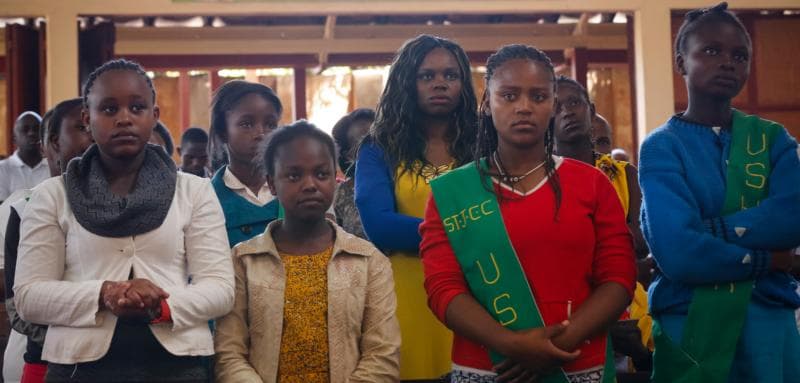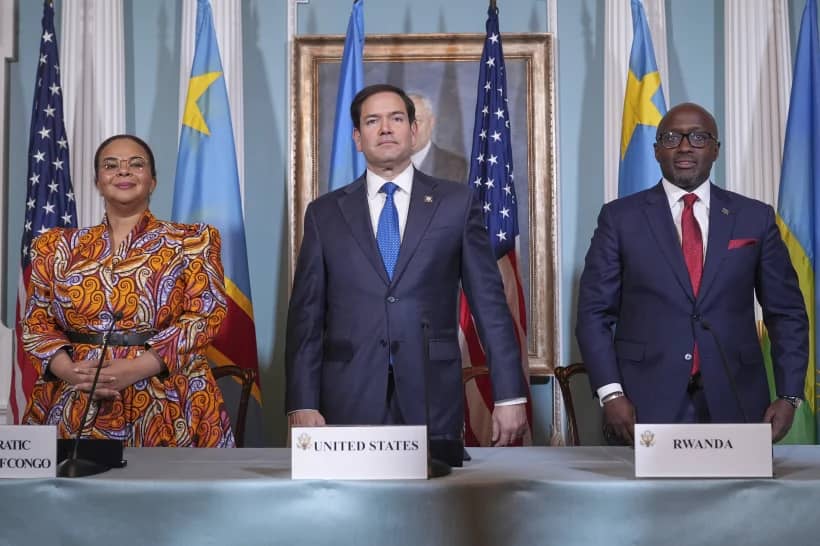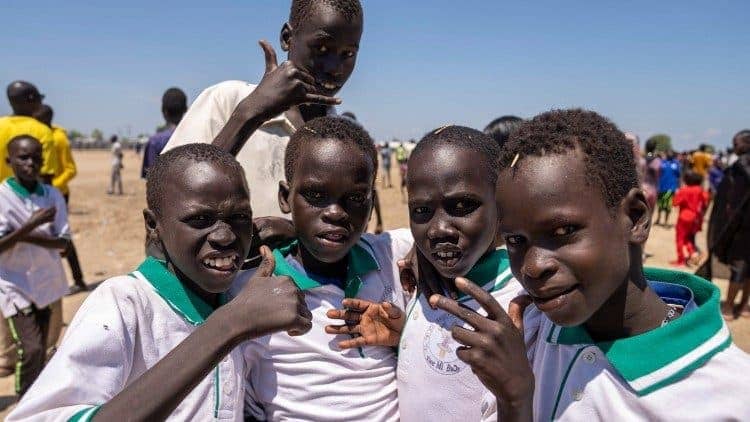ROME – As Africa’s bishops contemplate this week what their priorities will be for the future, one proposal under strong consideration is the creation of a special office for youth apostolate.
Under the proposal, one bishop would be tasked with overseeing youth outreach and activities at a continental level.
According to Ugandan news site PML Daily, the proposal was put forward by young people themselves during the 18th plenary assembly of the Symposium of Episcopal Conferences of Africa and Madagascar (SECAM), Africa’s continent-wide bishops’ conference.
The plenary, taking place July 20-29 in Kampala, Uganda and reflecting on the theme: “Church-Family of God in Africa, Celebrate Your Jubilee! Proclaim Jesus Christ Your Savior!”, coincides with the body’s 50th anniversary.
RELATED: Church in Africa celebrates 50 years of growth, mounting influence
At a press briefing at the close of discussions on the second day of the plenary, Archbishop Luke Thomas Msusa of Blantyre, Malawi said that “if we ignore the call of our young people today and continue with business as usual without recognizing them, without empowering them, it means that the SECAM of tomorrow will not be very powerful.”
Noting that much of Africa’s Catholic population is the fruit of missionary activities, Msusa said that if the current hierarchy of the local Church are leaders, “it is because of the missionaries from Europe, America and other countries who came to form us when we were young people.”
“Now that the young people of today are calling upon us to recognize them and to be empowered to work within the Church, we the bishops in SECAM should give them space so that they may become good leaders of tomorrow.”
Created in Uganda during St. Pope Paul VI’s visit to the nation in 1969, SECAM brings together forty different national and regional bodies of Catholic Bishops in Africa. Pope Paul VI’s trip fifty years ago marked the first-ever papal visit to Africa, and the July 29, 1969, establishment of SECAM cemented the continent’s growing influence in global Catholicism.
At the close of this week’s meeting, the body will release the “Kampala document” based on the weeklong discussion and outlining SECAM’s vision going forward.
Part of this vision will almost certainly focus on the growing number of young people in Africa, whose population as a whole is very young, with 60 percent of the entire continent aged below 25 and 41 percent under the age of 15, making it the youngest continent in the world.
According to the U.N. population division’s World Population Prospects report for 2019, in Sub-Saharan Africa alone, where most of the continent’s booming population growth in recent decades has taken place, 62 percent of the population is below age 25, with 11.7 persons aged 25 to 64 for each person aged 65 or over.
The working age population is rapidly growing, with the bracket of people 25-64 in sub-Saharan Africa expected to grow from 35 percent to 43 percent in 2050, and 50 percent by 2100.
Catholicism in Africa has mimicked this overall population growth, with its skyrocketing numbers making it the place where the Catholic Church has grown more than any other continent in the world over the past 50 years. Some 65 percent of Catholics in Africa are young people.
With a growing and increasingly younger church on their hands, Africa’s bishops listened carefully when young people said during a series of presentations at the plenary that they believed bishops needed a point-man at a continental level for better coordination and to organize follow-up initiatives to Pope Francis’s new post-synodal apostolic exhortation Christus Vivit, based on the conclusions of the October 2018 synod of bishops on youth.
In comments at the press briefing, Archbishop Gabriel Charles Palmer-Buckle of Cape Coast, Ghana said that with the number of young people growing as fast as it is, “whether we like it or not we should focus our attention on them.”
“For me, I consider the youth as not (the) tomorrow of the Church but today, I call them a present, a gift,” he said, adding, “they are the ones who have the vitality, the strength, the creativity, the initiative…Imagine if the Church does not tap into such opportunities.”
Follow Elise Harris on Twitter: @eharris_it
Crux is dedicated to smart, wired and independent reporting on the Vatican and worldwide Catholic Church. That kind of reporting doesn’t come cheap, and we need your support. You can help Crux by giving a small amount monthly, or with a onetime gift. Please remember, Crux is a for-profit organization, so contributions are not tax-deductible.














